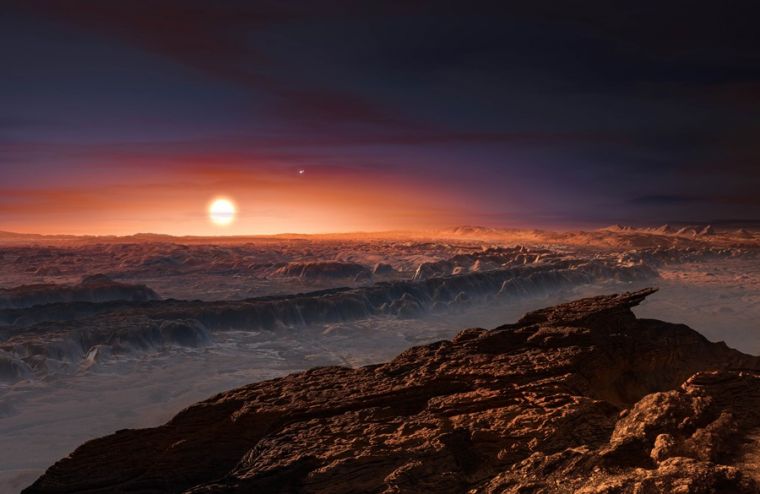If there's intelligent life in another planet, would such life forms need the Gospel? Bible scholars reflect

The Bible does not mention intelligent life elsewhere in the universe, but what if there is?
The question is not really new, but it has gained added impetus following the discovery of another planet that scientists say might support life. The planet is called Proxima b, a potentially Earth-like celestial body 4.24 light-years away whose discovery was announced on Aug. 24 in the scientific journal Nature.
The discovery, according to the scientific journal, "fulfils a longstanding dream of science-fiction writers — a potentially habitable world that is close enough for humans to send their first interstellar spacecraft."
"The search for life starts now," says Guillem Anglada-Escudé, an astronomer at Queen Mary University of London and leader of the team that made the discovery.
Bible scholars are now weighing in on the latest discovery, referencing it to the Scripture.
Bill Nettles, physics department chair at Union University, an evangelical Christian university in Tennessee, U.S., says "if there is intelligent life on other planets, we definitely need to tell them Earth's Gospel story and learn what their history is."
Speaking to the Baptist Press, Nettles believes "there's nothing in the Bible that excludes biology on other planets, just as there's nothing to exclude other planets. The larger theology comes into view when you consider the work of Christ in redeeming mankind, and the extensiveness of that work."
He noted that most conservative Bible scholars seem to believe that "there is only one created universe, one fall, one redemption for all time and space and a glorification of one set of created beings along with their Savior."
Others, however, speculate that there could be events in other universes that include atonement for other intelligent creatures, he said.
John Laing, a theology professor at Southwestern Baptist Theological Seminary in Fort Worth, Texas, said the Scripture does not actually rule out the prospect of life on other planets.
If God created other intelligent life forms, He likely did so on the fifth or sixth day of creation, "when sea creatures and land creatures were created, respectively," said Laing.
He said any intelligent extraterrestrials are not likely to look like humans since only humans are made in God's image and considered as "the apex of creation," noting that possessing intelligence is not the same as being created in the divine image.
"Consider angels: they are more powerful than we and they are intelligent and apparently have free will," Laing said. "Nevertheless, they are not made in the image of God, and we are. I suspect non-human intelligent physical creatures could exist without being made in the image of God."











